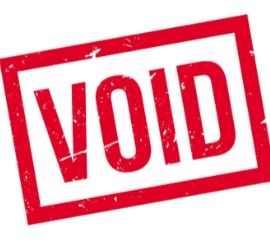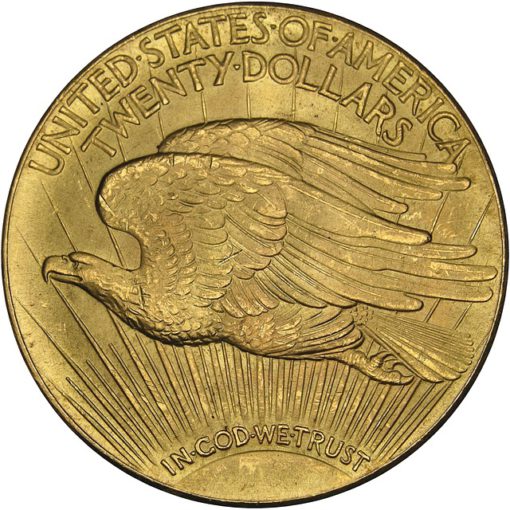ETF vs Index Fund: Which Is Right for You?
 ETF vs Index Fund: Exchange-traded funds and index funds are great for both stock market newcomers and experts alike. But, there are a few differences to understand before you start investing. When it comes to a choice between ETF vs index fund, which is a better investment for you? The truth is, they share more similarities than differences, but there are a few considerations that could help you decide.
ETF vs Index Fund: Exchange-traded funds and index funds are great for both stock market newcomers and experts alike. But, there are a few differences to understand before you start investing. When it comes to a choice between ETF vs index fund, which is a better investment for you? The truth is, they share more similarities than differences, but there are a few considerations that could help you decide.What is an ETF?
Exchange Traded Funds (ETFs), aren’t sold directly by fund companies. Instead, they are listed on an exchange. To trade, you must have a brokerage account to buy and sell those shares. Historically, that has made the ETF vs index fund decision more expensive for long-term investors. This is due to the fact you needed to pay a commission each time you want to buy or sell. However, in the past few years, a price war initiated by online brokers has changed all that. Now, to stay competitive, many brokers offer free trades for stocks and ETFs.
That means ETF investors can get the convenience of buying and selling in the middle of the day at no extra cost. So does that mean you should go with an ETF over a mutual fund? For one thing, with sometimes fast-moving prices, trading on the open market requires more skill than simply logging on to a fund company website and ordering mutual fund shares at the end-of-day price. There’s also the matter of psychology. The trick to profiting in the stock market is to stay invested for the long term. However, studies show individual (and oftentimes) professional investors have a tendency to trade too much in response to dramatic market moves. As a result, they end up making rash calls that ultimately hurt their returns. For many average investors, there is no big downside, and perhaps a benefit, to being a step removed from the action. (Source: money.com)
What is an Index Fund?
An index fund is a pool of investment capital that is based on a pre-established basket of stocks or indexes. The fund can be structured as either a mutual fund or an exchange-traded fund (ETF). This index fund may be created by an individual fund manager or by a company such as an investment bank or a brokerage. These fund managers then replicate the index, creating a fund that looks as much as possible like the model index. Once created, the fund does not require active management. Over time, as the index changes with companies being added and deleted, and the fund manager mechanically duplicates those changes in the fund.
Index funds are considered to be a passive type of investing. Active investing is where a manager analyzes stocks and tries to pick the best ones to outperform the market. But, replicating an existing index means that index funds tend to have low expense ratios with no active management required. This passive approach keeps management fees down making the fund cheaper for investors getting into the market.
Some of the most well-known indexes include the S&P 500, the Dow Jones Industrial Average, and the Nasdaq 100. Index funds are a popular strategy for ETFs to use, and virtually all ETFs are based on indexes. (Source: bankrate.com)
What is an Active Mutual Fund?
A mutual fund is a pool of investor money used to invest in a portfolio of assets. The portfolio can contain stocks, bonds, or other types of assets. This aggregate of assets is professionally managed by an investment company on behalf of investors who pool their money. In exchange, the fund charges investors a fee. The fee averages around 1% of the amount of money invested annually. Some charge more, some less. That means $100 for every $10,000 you invest.
In the case of most stock funds, holdings are selected by a portfolio manager. The objective is to pick the stocks that are poised to perform the best while avoiding potential losers. This process is referred to as active management. But, this is not the only way to manage or run a mutual fund.
What is a Passive Index Fund?
An index fund follows an entirely different strategy from funds that are actively managed. An index fund buys all the shares that make up a particular index. This is opposed to picking and choosing those stocks that the portfolio manager thinks will outperform the market. Common indexes to replicate are the Standard & Poor’s 500 index of large-company stocks or the Russell 2000 index of smaller ones. The aim is to duplicate the performance of the entire index within a fund proportionally composed of the same stocks.
Index funds buy and hold rather than trade frequently and they require no analysts to research companies. As a result, they are much cheaper to operate. Index funds can charge fees of just 0.02% annually, or $2 for every $10,000 you invest. By definition, when you own all the stocks that make up a market, you’ll earn just the “average” return of all the stocks in that market.
This raises the question: Who would want to settle for just “average” performance? As it turns out, plenty of investors around the world. While it’s counter-intuitive, academic research has shown that the higher expenses associated with active management and the inherent difficulty of picking winning stocks consistently over long periods of time mean that most funds that aim to beat the market actually end up behind in the long run. Indeed, mutual fund researcher Morningstar regularly studies the performance of actively managed funds. Over the past 10 years, fewer than one in 10 actively managed blue-chip stock funds have outperformed comparable index funds, and only about 20% small-company stock funds have done so. (Source: money.com)
Why are Index Funds so Popular?
Investors like index funds because, with a single purchase, they offer immediate diversification. For example, one share of an index fund based on the S&P 500 provides proportional ownership of all 500 companies. Some funds such as S&P 500 index funds allow you to own companies across industries. Others allow exposure to a specific industry, country, or even investing style, for instance, sustainable energy stocks.
The S&P 500 index fund continues to be among the most popular index funds. S&P 500 funds offer a good return over time, they’re diversified and they’re about as low risk as stock investing gets. Like all stocks, it will fluctuate, but over time the index has returned about 10 percent annually. That doesn’t mean index funds make money every year, but over long periods of time, that’s been the average return. (Source: bankrate.com)
Index ETF vs Index Mutual Fund
If you have already decided you want an index fund, you still need to decide between index-tracking ETFs and index-tracking mutual funds. ETFs trade on an exchange throughout the trading day. Also, ETFs are highly liquid, which means you can trade them easily as their prices can go up and down over the course of a day. On the other hand, mutual funds only trade once per day after the market has closed. Nevertheless, mutuals also carry many of the same benefits, like fewer taxable distributions and lower expense ratios.
On the other hand, investing in ETFs involves paying a commission fee to a broker every time you make a trade. Even if you’re using a discount broker, these fees may amount to $5 to $15 per trade, though they can add up quickly. Still, many brokers offer a range of ETFs that are commission-free, such as Charles Schwab and TD Ameritrade. Like index mutual funds, ETFs are typically passively managed, as they are attempting to match some sort of index benchmark rather than outperform it. This isn’t always the case — some ETFs are actively selected and managed — but it is for the most popular funds. (Source: smartasset.com)
ETF vs Index Fund – What they have in Common
ETF vs Index Fund – They both bundle together many individual assets into a single investment. Both have become a popular choice for investors, and for good reasons:
- Diversification. Just a few index funds or ETFs can lead to a highly diversified portfolio. For example, an ETF based on the S&P 500 will give you exposure to five-hundred of the country’s largest companies.
- Cost. Index funds and ETFs are passively managed. This means the investments within the fund are based on an index, or subset of the broader investing market. This is compared with an actively managed fund, in which a human broker is actively choosing what to invest in. Active management results in higher costs for the investor in the form of expense ratios. In 2018, the average annual expense ratio for passively managed funds was 0.15%, compared with actively managed funds’ average expense ratio of 0.67%.
- Returns. For long-term investors, passively managed index funds tend to outperform actively managed mutual funds. Passively managed investments follow the ups and downs of the index they’re tracking. These indexes have historically shown positive returns. The annual total return of the S&P 500, for example, has averaged around 10% over the last 90 years.
Actively managed mutual funds may perform better in the short term. This is because fund managers are making investment decisions based on current market conditions and their own expertise. But, it is unlikely that fund managers can make consistent, market-beating decisions over a long period. Also, with higher expense ratios, active management can lead to lower returns over time versus passively managed funds.
ETF vs Index Fund – The Differences
ETFs and index funds have many of the same benefits. But, there are a few distinctions of which to be aware.
How they are traded
The biggest difference between ETFs and index funds is that ETFs can be traded throughout the day like stocks. However, index funds can only be bought and sold only at the end of the trading day at a price set once daily.
For long-term investors, this issue isn’t of much concern. Buying or selling at noon or 4 p.m. will likely have little impact on the value of the investment in 20 years. However, if you’re interested in intraday trading, ETFs are a better way to go. They can be traded like stocks, yet investors can still reap the benefits of diversification. The biggest takeaway is that both ETFs and index funds are great for long-term investing, but with ETFs, investors have the option to buy and sell throughout the day. And although they trade like stocks, ETFs are usually a less risky option in the long term than buying and selling stocks of individual companies. (Source: nerdwallet.com)
Minimum investment required
In many cases, ETFs will have a lower minimum investment than index funds. Most of the time, all it takes to invest in an ETF is the amount needed to buy a single share. Some brokers, such as Robinhood, even offer fractional shares. Index funds often put minimum investments in place. For example, Vanguard has a minimum investment of $3,000 for most of its index funds.
But for index funds, brokers often put minimums in place that might be quite a bit higher than a typical share price. Vanguard, for example, has a minimum investment of $3,000 for most of its index funds, while T. Rowe Price has a minimum initial investment of $2,500. However, online brokers that don’t have minimum initial investments do exist. If you have only a small amount to invest, consider two options: an ETF with a share price you can afford or an index fund that has no minimum investment amount. Also be sure that your brokerage doesn’t impose an account minimum you can’t meet, though many brokers today have lowered their minimums to zero. (Source: nerdwallet.com)
Capital gains taxes
ETFs are more tax-efficient than index funds. This is due to the way they’re structured. When you sell an ETF, you’re typically selling it to another investor. As a result, the cash is coming directly from the buyer. Any resulting capital gains taxes on that sale are yours alone to pay.
To get cash out of an index fund, you technically must redeem it from the fund manager. The manager will then have to sell securities to generate the cash to pay to you. When this sale is for a profit, the net gains are passed on to every investor with shares in the fund. This means you could owe capital gains taxes without ever selling a single share. This happens less frequently with index funds than with actively managed mutual funds. Nevertheless, from a tax perspective, ETFs are generally superior to index funds for tax purposes.
Cost of ownership
Both ETFs and index funds can be very cheap to own from an expense ratio perspective.
For example, Schwab’s Broad Market ETF and Vanguard’s S&P 500 ETF both have expense ratios of 0.03% as of this writing, meaning you’ll pay just 30 cents per year for every $1,000 invested. Schwab’s S&P 500 index fund also has an extremely low expense ratio of 0.02%, while Vanguard’s Total Stock Market Index Fund Admiral Shares has an expense ratio of 0.04%. Another cost to look for is trading commissions. If the broker does charge a commission for trades, you’ll pay a flat fee every time you buy or sell an ETF, which could eat into returns if you’re trading regularly. But some index funds also come with transaction fees when you buy or sell, so compare costs before you choose either.
When buying ETFs, you’ll also incur a cost called the bid-ask spread, which you won’t see when purchasing index funds. However, this expense is usually very small if you’re buying high-volume, broad market ETFs. In the end, index funds and ETFs are both low-cost options compared with most actively managed mutual funds. To decide between ETFs and index funds specifically, compare each fund’s expense ratio, first and foremost, since that’s an ongoing cost you’ll pay the entire time you hold the investment. It’s also wise to check out the commissions you’ll pay to buy or sell the investment, though those fees are usually less important unless you’re buying and selling often. (Source: nerdwallet.com)
ETF vs Index Fund – What are your priorities?
All people are different, and each investor is in a different financial position. Investing $100 may be a big commitment for one person. Another may have no problem coming up with $10,000 to start investing in ETFs or index mutual funds. As an investor, you have to consider your priorities when it comes to the results you are seeking.
Taxes
The easiest way to minimize taxes is to invest in tax-advantaged retirement accounts like an IRA or 401(k). If you’re only investing in tax-advantaged accounts, you don’t need to worry as much about the capital gains taxes. Taxes are less a concern as they are incurred by index mutual funds or ETFs when portfolio managers change their holdings. You don’t need to worry about capital gains when you sell individual shares for a gain or loss in tax-advantaged accounts, either. Furthermore, the tax differences between index mutual funds and ETFs are very minimal. The tax advantages of ETFs over index mutual funds shouldn’t be the only factor you consider when deciding between the two types of funds.
Small Entry Investment
ETFs, offer one of the cheapest ways to start investing. With just a few dollars, you can buy a share of an ETF with your broker.
That said, there are some index mutual funds that allow you to get started with as little as $1. The Schwab S&P 500 Index Fund (NASDAQMUTFUND:SWPP.X), for example, requires just $1 to get started, and it has an extremely low 0.03% expense ratio to boot. If you do some homework, you may be able to find a suitable index mutual fund with a low minimum investment. Even if you decide ETFs offer better options, you may consider switching from an ETF to an index mutual fund as you meet minimum investment thresholds, especially if you’re investing in a tax-advantaged account and won’t incur any capital gains taxes from selling shares. Index mutual funds usually offer a more efficient way to track an index and keep all your cash invested. (Source: fool.com)
Set it and forget it
To automate your investing as much as possible, index mutual funds offer a lot more flexibility than ETFs. You can set up an automatic investment program with your mutual fund company. This lets you automatically invest a certain dollar amount every month, quarter, or year. The mutual fund company will automatically withdraw funds from your bank account and invest them in your pre-selected index mutual fund. You don’t have to worry about buying whole shares.
You might be able to automate regular ETF investments through your broker. However, most brokers won’t allow you to set up an automatic investment program like index mutual funds. Those that do are unlikely to offer commission-free ETFs. This means those commission fees will eat into your returns, especially if you’re investing a relatively small amount at fixed intervals.
Actively manage and trade
Most investors, especially beginners, aren’t interested in using index mutual funds as a trading vehicle to try to beat market returns. They’re just looking for a simple way to buy and hold the underlying assets and match the index’s long-term performance.
However, maybe you want to trade in and out of certain indexes. Or, use leverage and options to help maximize your returns. If that’s the case, then ETFs are your only choice. Index mutual funds are extremely limited in how they’re bought and sold.
Index mutual funds are probably better for most beginner investors
It’s also possible to find index mutual funds with low minimum investments and low expense ratios. And for investors just looking to buy and hold, the ability to buy and sell ETFs throughout the day isn’t important.
The advantages of ETFs over index mutual funds are often easily overcome with a little extra research. Most investors should be investing in their tax-advantaged accounts first, negating the tax advantages of ETFs. In fact, that last point can help index investors avoid acting irrationally. The index mutual fund company won’t encourage you to sell your shares, but a broker might so they can make a commission. That’s one reason why Warren Buffett and Jack Bogle both recommend index mutual funds over ETFs. Meanwhile, ETFs’ substitutes for features like commission-free and automatic dividend reinvestment are significantly weaker than the options available through index mutual funds.
And the fact that most investors will have to manually make additional investments in ETFs leaves further room for them to be less disciplined than they would be if they set up automatic investments with an index mutual fund. For most beginners, index mutual funds offer a better option than ETFs. There will always be exceptions, of course, and knowing what you’re looking for when comparing the two — expense ratios, commissions, dividend reinvestment options, etc. — will help you make the right decision for your situation. If an ETF has a significantly lower expense ratio than the index mutual fund counterpart, for example, it’s probably worth taking a closer look at your options for investing in the ETF. Source: fool.com
ETF vs Index Fund – Which to Use
Whichever choice you make, you can’t really go wrong picking an index mutual fund or an ETF. Both are effective ways of matching the index you’re looking to track and will get the job done.
“Generally speaking if you only have a little money to invest or are investing in a taxable account and concerned about minimizing taxes, then the ETF may be the better option,” Jessee says. ETFs are particularly advantageous if you’re using a broker that doesn’t charge a trading commission, which would generally make the ETF cheaper than its index fund counterpart. If you just want to put your savings plan on autopilot, then finding a cheap index mutual fund may work better, because of most mutual funds … let you automatically invest a certain dollar amount at set intervals,” he says. ETFs can’t be automated so you’d have to manually place each trade. Be sure to examine the index underlying your fund, Smith says. “For example, not all large-cap growth indexes track the same stocks.” (Source: money.usnews.com)
ETF vs Index Fund Summary
- Mutual funds are pooled investment vehicles managed by a money management professional.
- Exchange-traded funds, or ETFs, represent baskets of securities traded on an exchange like stocks.
- ETFs can be bought or sold at any time, whereas mutual funds are only priced at the end of the day.
- In general, ETFs are lower cost and more tax-efficient than similar mutual funds.



